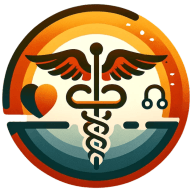18 Key Qualities Healthcare Leaders Value in Building Effective Teams
Unveiling the core attributes for leadership success in healthcare, this article delves into the essence of building effective teams backed by expert insights. It navigates through crucial qualities such as empathy, communication, and adaptability, fundamental in enhancing patient care and team dynamics. Drawing from seasoned professionals, it offers a roadmap to cultivating a resilient and productive healthcare environment.
- Empathy Fosters Trust and Collaboration
- Commitment to Collaboration Enhances Patient Care
- Empathy Improves Communication and Patient Outcomes
- Emotional Intelligence Builds Stronger Relationships
- Adaptability Ensures Resilience and Productivity
- Empathy Connects with Patients and Colleagues
- Passion for Field Maintains High Quality Work
- Clear Communication Builds Trust and Alignment
- Effective Communication Ensures Seamless Workflow
- Communication Minimizes Errors and Builds Trust
- Empathy Encourages Teamwork and Compassionate Care
- Strong Communication Skills Minimize Errors
- Emotional Intelligence Transforms Healthcare Experience
- Communication Skills Enhance Safety and Efficiency
- Empathy Strengthens Collaboration and Patient Care
- Empathy Creates Supportive and High-Morale Teams
- Flexibility Contributes to Positive Work Environment
- Adaptability Promotes Continuous Improvement
Empathy Fosters Trust and Collaboration
One key quality I prioritize when building a team of healthcare professionals is empathy. I recall hiring a nurse for a clinic who not only had excellent technical skills but also demonstrated genuine compassion during the interview.
She shared a story about staying late with a patient to ensure they understood their discharge instructions and felt confident managing their care at home.
Empathy fosters trust between team members and patients, creating a supportive and collaborative work environment.
When team members care about each other and their patients, communication improves, conflicts are resolved more constructively, and the overall morale is higher. This quality directly contributes to better patient outcomes and a workplace where everyone feels valued.

Commitment to Collaboration Enhances Patient Care
One key quality I prioritize when building a team of healthcare professionals is a strong commitment to collaboration. In a multidisciplinary clinic like The Alignment Studio, where physical therapists work alongside Pilates instructors, podiatrists, massage therapists, and nutritionists, teamwork is essential for delivering seamless, patient-centered care. I look for professionals who are not only experts in their fields but also open to sharing knowledge and learning from others. This fosters a culture of mutual respect and ensures that every patient benefits from a truly holistic approach. Collaboration contributes to a positive work environment by creating a sense of shared purpose and allowing team members to feel supported in their roles. It also enhances our ability to develop comprehensive treatment plans that address the root causes of a patient's issues rather than just isolated symptoms.
A great example of this came when we treated a professional dancer recovering from a hip injury. Drawing on my 30 years of experience in sports physical therapy and postural rehabilitation, I developed an initial physical therapy plan to address her pain and mobility issues. I then worked closely with one of our Pilates instructors to design a targeted movement program to rebuild her strength and stability. Our massage therapist also played a crucial role in managing soft tissue tension. By working together, we helped her not only return to performing but also improve her overall biomechanics to reduce the risk of future injury. This case exemplifies how collaboration, fueled by each team member's dedication and expertise, leads to exceptional outcomes and reinforces a productive and rewarding work environment.

Empathy Improves Communication and Patient Outcomes
When building a team of healthcare professionals, empathy is the key quality I prioritize. Beyond technical skills and qualifications, empathy ensures that team members genuinely care about their patients and colleagues, fostering a culture of support and understanding.
Empathy contributes to a positive and productive work environment by improving communication, collaboration, and patient care outcomes. Team members who are empathetic are more likely to listen actively, resolve conflicts constructively, and adapt to the emotional needs of others, whether it's a patient in distress or a colleague facing burnout.
An empathetic team member might notice when a co-worker is overwhelmed and step in to assist, creating a sense of camaraderie and shared responsibility. This quality not only enhances workplace morale but also builds trust, making the team more cohesive and resilient.

Emotional Intelligence Builds Stronger Relationships
In my experience, one key quality to look for when building a team of healthcare professionals is emotional intelligence. Emotional intelligence involves being aware of one's own emotions, understanding the feelings of others, and responding to them with care and empathy.
This quality enables team members to communicate effectively, resolve conflicts amicably, and build stronger, more supportive relationships within the group. It fosters trust and respect, creating a positive and collaborative workplace environment.
For patients, emotional intelligence is equally crucial as it ensures they feel heard, valued, and understood, leading to better care experiences. By promoting empathy and mutual understanding, emotional intelligence helps the team remain focused and cohesive, even under stress, contributing to a highly productive and patient-centered healthcare setting.
Adaptability Ensures Resilience and Productivity
One key quality I always look for when building a team of healthcare professionals is adaptability. In healthcare, no two days are the same—appointments shift, patient needs evolve, and new tools or practices emerge. Having team members who can adjust to these changes without missing a beat creates a more resilient and productive workplace. Adaptable people don't just handle challenges—they find solutions and help others navigate through them. Whether it's embracing automation with practice management tools like Noterro or stepping in when schedules change, their flexibility keeps things running smoothly and morale high. In a field as dynamic as healthcare, adaptability isn't just a bonus—it's essential for success.

Empathy Connects with Patients and Colleagues
While building a team of healthcare professionals, one key quality that stands out is empathy. In healthcare, especially in urgent care settings, empathy helps professionals connect with patients on a deeper level, making them feel heard, understood, and supported. A study from Jefferson Health highlights that empathetic care often leads to significantly higher patient satisfaction rates. This connection leads to better patient outcomes, as patients are more likely to adhere to treatment plans and provide honest feedback when they feel their concerns are genuinely understood. Empathy also strengthens the trust between patients and providers, which is essential for improving health results and patient satisfaction. Building empathy within the team also contributes to a positive work environment. It enhances collaboration, communication, and conflict resolution, leading to smoother workflows and better team morale. Empathetic care boosts patient satisfaction, leading to positive reviews, recommendations, and increased loyalty. This, in turn, enhances the healthcare facility's reputation and strengthens its ties with the community. Ultimately, empathy is not just a personal trait; it's a cornerstone of successful healthcare delivery that benefits both patients and healthcare professionals.

Passion for Field Maintains High Quality Work
Though it may seem like a no-brainer, having a passion for the field is something that is absolutely vital to building a quality team of healthcare professionals. The healthcare industry can be an extremely stressful one, where massive responsibilities and often complex and difficult regulations and tasks can erode the excitement, and thus the quality of work output.
Therefore, it is important that when forming a team, you look for individuals who despite having to face the issues and difficulties of navigating the healthcare landscape, still maintain excitement and pride about what they do, and why they do it. By finding those individuals who still hold enthusiasm, you will better ensure that the motivation to continue to work hard and produce quality outcomes is high and that the end results will move beyond being simply satisfactory.

Clear Communication Builds Trust and Alignment
One key quality I look for when building a team of health care professionals is clear and open communication. This helps in building a successful health care team, keeping everyone aligned whether we're discussing treatment plans or coordinating patient care. Good communication builds trust among team members, creating a positive and collaborative atmosphere where ideas can be freely shared and challenges addressed effectively. It also impacts patient outcomes, ensuring high-quality care and making patients feel truly supported. In a fast-paced environment, clarity in communication helps avoid misunderstandings, allowing the team to work efficiently even under pressure. By clearly defining roles and responsibilities, communication reduces stress, prevents unnecessary delays, and ensures everyone is on the same page. Additionally, it strengthens relationships within the team, making it easier to navigate challenges and celebrate successes together. Ultimately, open communication not only enhances productivity but also creates a harmonious and resilient work culture.

Effective Communication Ensures Seamless Workflow
When building a team of healthcare professionals, I prioritize communication as a key quality. Effective communication ensures that all team members are on the same page, leading to a seamless workflow and improved patient care. At UNO DENTAL SAN FRANCISCO, I've seen first-hand how transparent communication improves collaboration among dental hygienists and administrative staff, resulting in a 20% increase in patient satisfaction scores. For example, during our transition to paperless charting, clear communication was vital to ensure every team member understood the new processes. This shift not only streamlined operations but also allowed us to reduce administrative errors by 15%. By fostering a culture of open dialog, we have created an environment where team members feel valued and empowered to contribute their ideas, enhancing overall productivity and job satisfaction.

Communication Minimizes Errors and Builds Trust
Effective communication is one of the most critical qualities I prioritize when building my team. In the high-stakes environment of healthcare, clear and precise communication is essential to ensure patient safety, streamline workflows, and foster collaboration.
Team members with strong communication skills are able to articulate their thoughts, actively listen, and convey complex information in a way that is easily understood by both colleagues and patients. This minimizes misunderstandings and reduces errors, particularly during critical processes like patient handovers, treatment planning, or emergency interventions.
Moreover, effective communication builds trust within the team, creating an atmosphere where individuals feel valued and heard. It encourages openness and transparency, enabling team members to address issues, provide constructive feedback, and resolve conflicts proactively. This not only enhances teamwork but also strengthens the overall morale of the group.
Empathy Encourages Teamwork and Compassionate Care
One key quality to look for when building a team of healthcare professionals is empathy. Empathy enables team members to understand and share the feelings of patients and colleagues, fostering trust, collaboration, and compassionate care.
In a healthcare setting, empathy helps professionals better connect with patients, improving patient satisfaction and outcomes. It also contributes to a supportive work environment where team members feel understood and valued. This quality encourages open communication, reduces conflict, and promotes teamwork, all of which are essential for delivering high-quality care and maintaining a positive, productive workplace.

Strong Communication Skills Minimize Errors
When building a team of healthcare professionals, I prioritize strong communication skills. In my experience, clear communication ensures patient care remains consistent and errors are minimized. For example, I once worked with a nurse who always double-checked instructions during shift changes, making sure nothing was missed. Her approach set a standard for the entire team and improved collaboration across departments. Open communication fosters trust, keeps stress levels lower, and boosts productivity because everyone feels supported. It also encourages team members to share ideas or concerns, creating a positive work environment where problems are solved quickly.

Emotional Intelligence Transforms Healthcare Experience
As a Chief Medical Officer with over two decades of leadership experience in complex healthcare environments, the most critical quality I seek is genuine emotional intelligence (EI) - a nuanced capacity for empathy, self-awareness, and adaptive communication that goes far beyond technical medical competence.
Emotional intelligence in healthcare isn't just a soft skill - it's a mission-critical capability that directly impacts patient outcomes, team dynamics, and organizational resilience. Our most successful teams demonstrate an extraordinary ability to navigate high-stress environments with compassion, clear communication, and psychological flexibility.
The key attributes of high EI in our healthcare professionals include:
- The ability to maintain calm and professional composure during critical medical scenarios
- Demonstrated capacity for active listening and genuine patient-centered communication
- Rapid emotional recalibration during high-pressure clinical situations
What makes emotional intelligence transformative is its ripple effect across the entire healthcare ecosystem. A single team member with strong EI can fundamentally shift team dynamics, create more supportive patient interactions, and build a culture of mutual respect and collaborative problem-solving.
The most profound medical interventions happen not just through technical expertise, but through our ability to create human connections that transcend the traditional clinical encounter. Emotional intelligence transforms healthcare from a transactional service to a deeply human, compassionate experience of healing and support.

Communication Skills Enhance Safety and Efficiency
Hi, I'm Forrest Webber, an Analyst at TriHaz Solutions (https://www.trihazsolutions.com), the leading medical waste company in the Southeast. At TriHaz Solutions, one of the most critical qualities we look for when evaluating healthcare companies we want to work with is strong communication skills. Clear and effective communication is essential to maintaining safety, efficiency, and collaboration in our line of work. This quality helps us by: Reducing Errors: Clear communication helps ensure protocols are correctly understood and followed, reducing mistakes that could pose safety risks or lead to regulatory issues. Enhancing Teamwork: Professionals with practical communication skills build trust and collaboration, which improves efficiency and boosts morale. Adapting to Challenges: Individuals with strong communication skills are better prepared to manage unexpected situations, collaborate on solutions, and maintain smooth operations. Ultimately, if we feel communication is lacking when evaluating an opportunity, we will pass. Please let me know if you have any questions! Best regards, Forrest Webber Analyst TriHaz Solutions forrest@trihaz.com www.trihazsolutions.com

Empathy Strengthens Collaboration and Patient Care
A key quality I look for when building a team of healthcare professionals is empathy. It's essential for fostering a supportive and understanding environment, both for patients and for colleagues. Empathy helps team members connect with patients on a personal level, improving patient care, and also strengthens collaboration among the team.
For example, in a previous role, I saw how a nurse's empathetic approach to a difficult patient situation helped ease the patient's anxiety, which led to a smoother treatment process. This same empathy also encouraged open communication among staff, creating a more positive and productive atmosphere in the workplace.

Empathy Creates Supportive and High-Morale Teams
Empathy is the key quality I prioritize when building a healthcare team. It fosters genuine patient care, strengthens teamwork, and creates an environment where colleagues support one another under high-pressure conditions. Empathetic professionals communicate better, deescalate conflicts effectively, and are more attuned to patients' and coworkers' needs. In my experience, teams built on empathy not only deliver better outcomes but also maintain morale, even during challenging times. It's the foundation of trust, collaboration, and a work culture where everyone feels valued.

Flexibility Contributes to Positive Work Environment
One key quality I look for when building our team of healthcare professionals is FLEXIBILITY.
We have 3 med spas in the metro area, so sometimes we may need our staff to work from a different location or to work on days they are not assigned as a result of a coworker's illness, bad weather or other unpredictable circumstances.
In some instances, we offer a monetary incentive or paying to fill up their gas tank for picking up a shift or commuting to a location where he/she doesn't typically work.
Employees who are flexible (i.e. open to working at other locations or on days which they are not assigned) help contribute to a positive and productive work environment.
We love our team for being so flexible!

Adaptability Promotes Continuous Improvement
When building a healthcare team, adaptability is crucial due to the industry’s rapid changes, such as regulatory updates and technological advancements. Adaptable team members respond effectively to challenges and promote continuous improvement. This quality fosters a collaborative environment that encourages creativity and enhances problem-solving, allowing the team to swiftly adjust and maintain relevant, impactful services.




